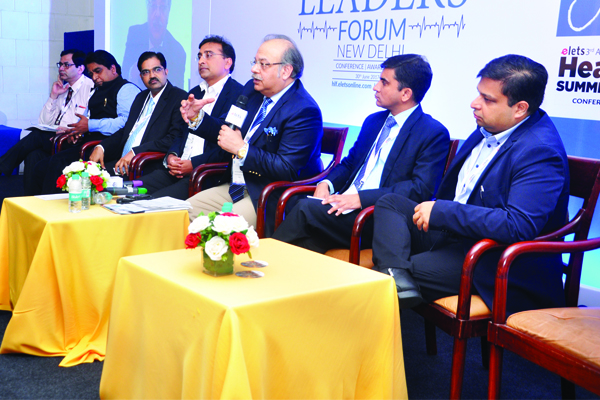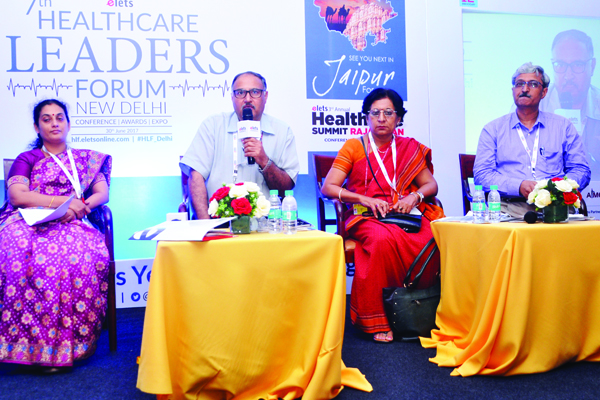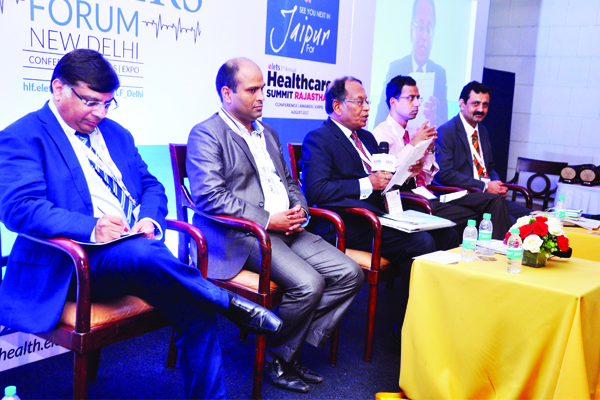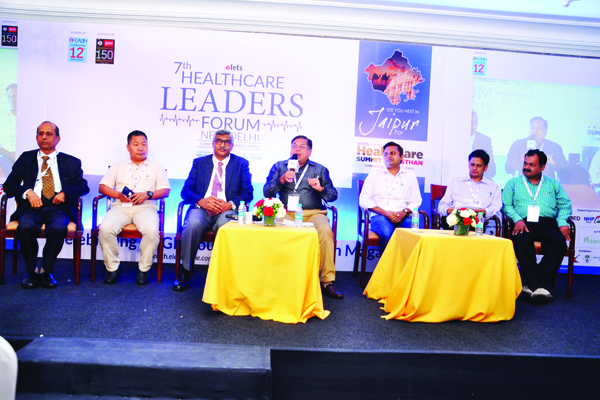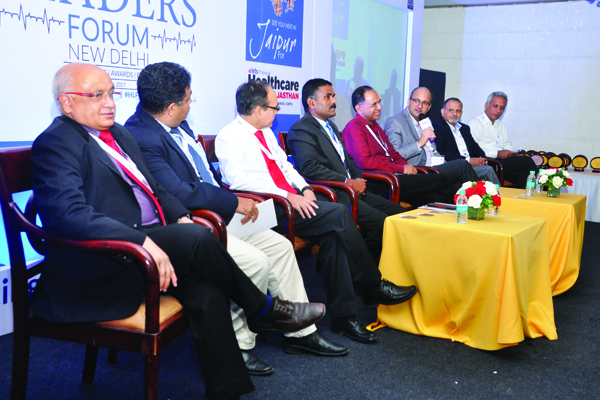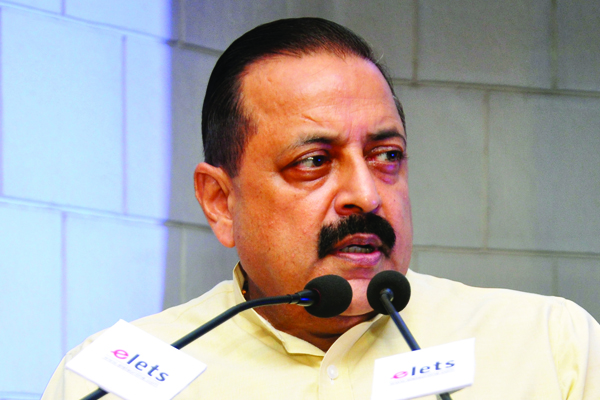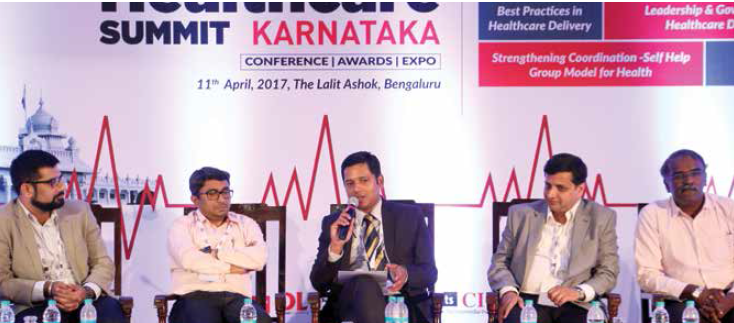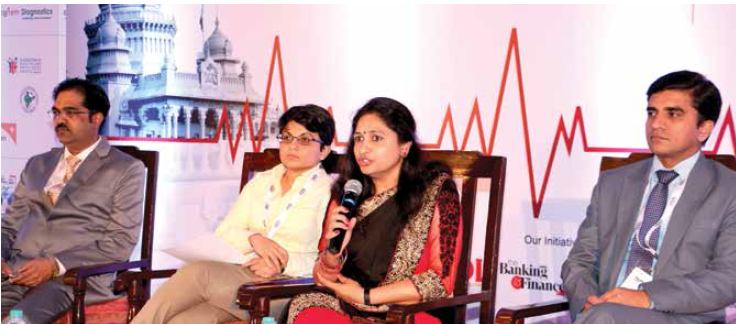

Conference Report
Inaugural Session



Evolving an effective healthcare ecosystem is a prerequisite for various government departments and other stakeholders in the healthcare sector. The inaugural session stressed on efforts undertaken to overcome key healthcare challenges through policy push, technology adoption, financial interventions like health insurance, quality infrastructure development, providing social security and integration of various programmes and initiatives to deliver outcome-based results.

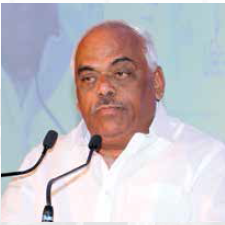 KR RAMESH KUMAR
KR RAMESH KUMAR
Minister for Health and Family Welfare
Government of Karnataka
The main objective of Karnatakas Health and Family Welfare department is to provide quality healthcare services to the people. Health for All, Health Everywhere is the motto of the government. Our mission is to provide comprehensive and quality health care services to ensure equitable access, redress regional imbalances, stabilise population and make AYUSH systems integral part of health care.
 KK SHAILAJA TEACHER
KK SHAILAJA TEACHER
Minister for Health and Social Justi ce
Government of Kerala
For evolving an effective healthcare ecosystem, it is a prerequisite that various government departments and those who deal with various aspects of public health should work in tandem so that the weak links in the healthcare chain can be identified and cured or replaced. There are serious efforts being made by the union and state governments to improve the quality of healthcare delivery to the people at large.
 DR K RAJESHWARA RAO
DR K RAJESHWARA RAO
Joint Secretary, Ministry of Health and Family Welfare,
Government of India
The National Health Policy, which is in place, gives a strategic direction for the development of health sector. In the context of the policy, investments are expected to be doubled for infrastructure, Human Resource, and technology. This is one of the important landmarks and perhaps it will trigger a lot of developments in the near future in the health sector.
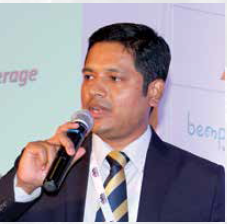 DR RATHAN KELKAR
DR RATHAN KELKAR
Mission Director, National Health Mission,
Government of Karnataka
Today, we are facing various challenges in the healthcare. We have overcome many of them, while we are still fighting against some. These challenges are on as we move on. Its not so easy to provide health services to all. Nevertheless, the health as topic has been taken up by the society itself, and the society has been evolving strategies to overcome the public healthcare concerns.
Key Takeaways
- Providing health services to all is a daunting challenge. Increasing awareness has led the society to take on the challenges and evolve strategies to tackle public healthcare concerns.
- Only 17% of population in India is covered by health insurance and as much as 80% of expenditure on health is out of pocket or not covered under the health insurance, which is the single biggest factor for pushing middle class families to the below poverty line.
- India has six independent insurance companies apart from 22 General Insurance Companies, which take care of health insurance needs of the entire country.
- One of the major challenges faced by health insurance companies is exhorbitant rates charged by hospitals for treatment and drugs. There is a need to have regulations in these two areas to make affordable healthcare a reality.
- To ensure highest level of standards at PHCs, a data-driven approach needs to be adopted. The eLAJ clinic model by Biocon Foundation, which digitises records of patients and also integrates health camp data. eLAJ has three interconnected modules: registration, clinical consultantion and diagnostic. Telemedicine can be built into this model for specialist consultation.
- Insights on the quality of air, water, food and materials help ensure the safety of entire communities.
- Besides six AIIMS that are already functional and AIIMS Rae Bareli that is under construction. As many as 13 more AIIMS are announced. Out of which, five AIIMS have been approved by the cabinet.
- In India, more than two- thirds of expenditure on health is through Out of Pocket (OOP) which is the most inefficient and least accountable way of spending on health.
- A new mission — ARDRAM — is being implemented in Kerala, which is primarily intended to modernise the public hospitals and make them patient friendly.
- Keralas new health policy aims not only to make structural modifications but also lay down a holistic health scheme to integrate modern medicinal system with the AYUSH streams.
- The Government of Karnataka this year allocated Rs 5,118 crore for the Department of Health and Family Welfare, which is more than the previous budget allocation.
- Five Super Speciality Hospitals to be established in Karnataka at a cost of Rs 25 crore each for treatment of cancer, heart diseases and other lifestyle diseases.
- One ambulance service to be provided in a radius of 10-15 km for population of every 35,000 in Karnataka.
- Under National Health Mission, dialysis centres to be established in 114 taluks of Karnataka.
- AYUSH Treatment Centres to be established under NHM in all taluk hospitals of Karnataka.
- Extension of e-Hospital programme to 206 community health centres and 2,353 PHCs in Karnataka under NHM.
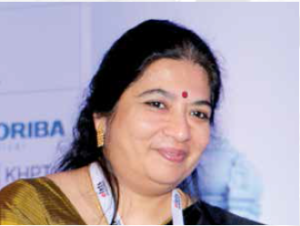 JAYASHREE THACKER
JAYASHREE THACKER
President, PerkinElmer (India) Pvt Ltd
PerkinElmer had been present in India since 1984 through a channel partner. From 2007 onwards, PerkinElmer (India) is operating as a 100% subsidiary of its parent organisation from Mumbai with regional offices across the country. We also have a diagnostic lab in Chennai. We deliver innovative solutions in the areas of diagnostics, life sciences, and applied markets. Our solutions help scientists, lab professionals and clinicians answer important questions linked to the impact of environment on human health.
 TL ALAMELU
TL ALAMELU
Director and General Manager
The New India Assurance Company Ltd
In India, only 17% of the population is covered by health insurance. A study shows that the single biggest factor for pushing middle class families to the below poverty line (BPL) is mainly expenditure on health. People struggle to come up while health issues push them down. As much as 80% of expenditure on health is out of pocket or not covered under the health insurance. Of which, 28% is the borrowed money. That is how people survive health issues in India.
The main focus of the summit was on four thematic areas: Best practices in healthcare delivery, leadership and governance to healthcare delivery, strengthening coordination “ self-help group model for health, information communication technology in healthcare.
 DR SUDHA CHANDRASHEKAR
DR SUDHA CHANDRASHEKAR
Director (M), SAST
Gratitude is a powerful process and I have the pleasant task of expressing our thanks to everyone involved in the event through their presence today or assisting in organising this health care summit. Health translates beyond boundaries and Honarable Health Minister of Kerala has taken time off from her state to be here today and share her thoughts.

RANI DESAI
Head, Strategy and Operations, Biocon Foundation
We have developed Primary Health “ eLAJ clinic model, which combines EMR has been developed especially for the primary healthcare. It can be installed at any PHCs in the country. eLAJ digitises records of patients and also integrates health camp data. eLAJ has three interconnected modules such as registration, clinical consultation and diagnostic. These modules talk to each others database effectively. We can also build telemedicine into this for specialist consultation.

Be a part of Elets Collaborative Initiatives. Join Us for Upcoming Events and explore business opportunities. Like us on Facebook , connect with us on LinkedIn and follow us on Twitter , Instagram.


